:cum:
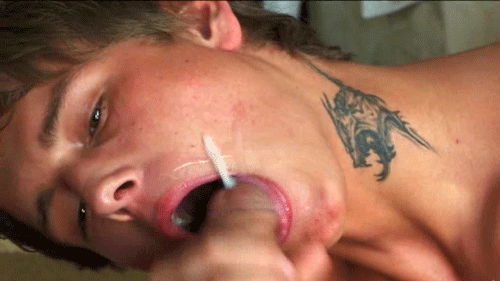
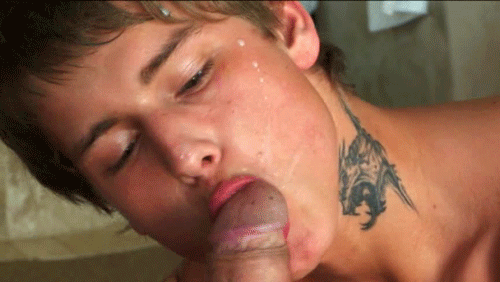
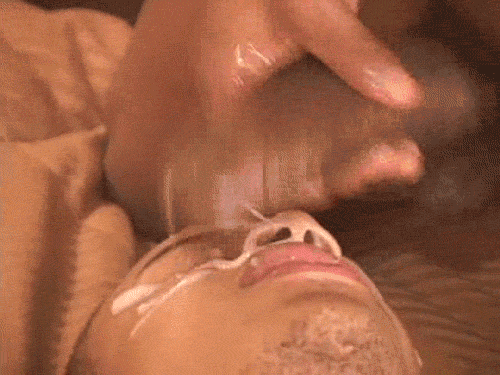
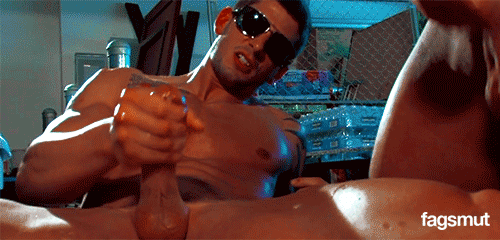
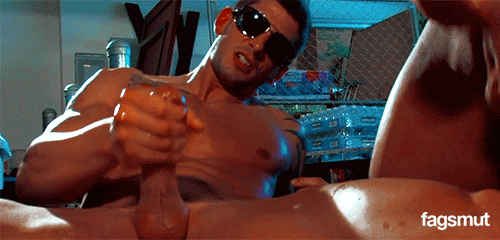
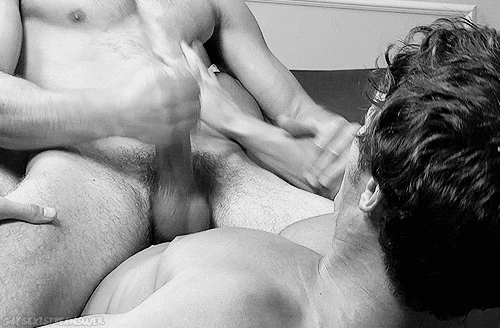
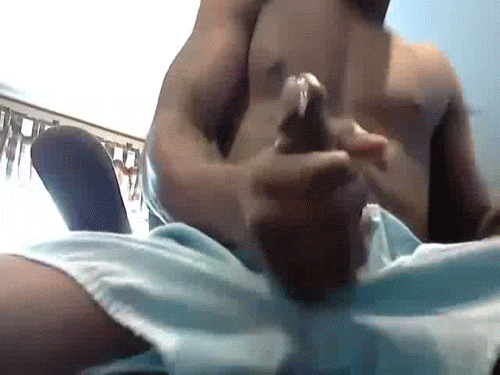
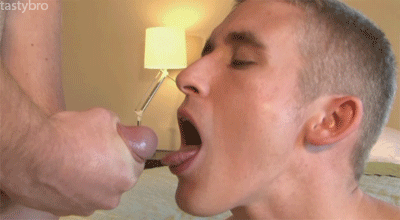

Loved this animated gif :hot2:
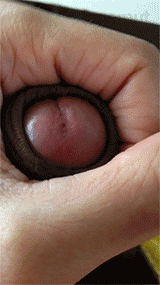

to the GT.ru Forums!!!
Gay Hate Crime Acquittal In Kentucky Throws Fuel On Hate Crime Debate
Over the past 10 years, as gay rights advocates have pushed the government to take steps to protect gay people from hate crimes, those arguing for and against such laws have observed that hate crime cases are exceptionally difficult to prosecute. This week, a ruling in the first-ever federal prosecution of a hate crime motivated by anti-gay bias threw still more fuel onto the long-simmering debate.
At first glance, the facts of the case may seem straightforward. In the middle of an April night last year, cousins David Jason Jenkins, 37, and Anthony Ray Jenkins, 20, kidnapped and beat a 28-year-old gay man named Kevin Pennington in the remote hills of Kingdom Come State Park in southeastern Kentucky. Anthony Jenkins' wife, Alexis LeeAnn Jenkins, 19, and his sister, Mable Ashley Jenkins, 20, watched the beating. They later testified that the men shouted anti-gay slurs like "Kill that faggot!" as they meted out the abuse. When the men paused to search for a tire iron to finish off Pennington, the victim threw himself over the side of the road to hide, according to the FBI.
Covered in bruises and cuts, Pennington eventually limped back to the road and dialed 911. "They did it because I'm gay," he told the dispatcher, according to court records. "They said they was going to kill me."
(Click here for HuffPost's in-depth investigation into the crime.) hXXp://www.huffingtonpost.com/2012/05/23/hate-crime-harlan-county_n_1534421.html
The government alleged that all four Jenkins targeted Pennington because he was gay. This past spring, Alexis and Ashley Jenkins pleaded guilty to the hate crime charges, leading to the first-ever convictions for a gay bias crime under the Matthew Shepard and James Byrd Jr. Hate Crimes Prevention Act, which was signed by President Barack Obama in 2009.
The men both pleaded not guilty to all charges. Although they didn't deny that a fight had occurred, their lawyers sought to frame the incident as a struggle over a drug deal gone wrong.
Late Wednesday night, after nearly five hours of deliberation, a jury in London, Ky., convicted the Jenkins men of kidnapping and conspiracy charges, but rejected the theory that hatred had motivated their crimes. Andrew Stephens, the court-appointed lawyer for David Jason Jenkins, sounded jubilant on the phone as he recounted the defense's successes, despite the fact that his client still faces the possibility of life in prison.
Stephens credited the failure of the government's hate crime theory to two main factors. First, he said, the evidence dispelled any doubt that a dispute over drugs had played a role in the incident; second, testimony from both women and from Pennington likely convinced the jury that three of the four Jenkinses are themselves bisexual. "There were questions about everybody's sexuality except Anthony's," the lawyer said.
When the trial began, some legal experts thought the government might rack up its first victory in a gay hate crime case. The acquittal has them assessing why the government failed and has added strength to the argument that hate crimes are too difficult to prove.
The story that emerged in the trial was complicated and ambiguous, and that is far from unusual in hate crime prosecutions. "A lot of these cases that look like they are poster cases of hate crime and bias, on close inspection turn out to be much more complicated situations," said James B. Jacobs, a law professor at New York University and one of the leading critics of hate crime laws.
Echoing the closing statement of the defense lawyers, who argued that the government had brought the case for political reasons, Jacobs said he thought it wasn't necessary for the feds to prosecute the case under the hate crime law. "It was a clear case apparently of kidnapping and assault," he said. "That's a very serious crime with a very serious punishment. What's wrong with that?"
Like the other experts interviewed, Jack Levin, a professor of sociology and criminology at Northeastern University and author of The Violence of Hate, questioned why the government had chosen such a complicated case to test the law. In the majority of violent hate crimes, he said, the victim and the attacker are strangers. In this case, all five had known each other for years.
And then there was sexuality of the attackers. "Let's face it," Levin said. "As a practical matter, if you're [the victim and the perpetrator are] in the same group, the jury will be more reluctant to convict someone of a hate crime."
Despite the acquittal on the hate crime charges, he argued, the trial was still a victory for the government.
"The feds get criticized too often for ignoring hate crime investigations," Levin said. "That's why the federal government wins even if the defendant is acquitted. They came up with the charge and took a risk, and now who's at fault for the acquittal?”
He answered his own question: "The jury, not the feds."
Suzanne Goldberg, a professor at Columbia Law School, also described the case as a victory for the government, noting that the defense lost its challenge to the constitutionality of the hate crime law before the trial even began. "It is a big deal that the court rejected the challenge to the hate crimes law," she said.
With two guilty pleas from the Jenkins women and two possible life sentences for the Jenkins men, the prosecution can hardly be portrayed as an outright bust. But hate crime laws are intended to improve society – to carve out a safe space for minorities by outlawing violence motivated by bias -- and by that measure, some felt the case fell short of achieving its goal.
"I'm not sure the federal criminal prosecution leaves this community in any better shape," said Katherine Franke, a professor at Columbia Law School and the director of the school's Center for Gender and Sexuality Law.
"The law is a very blunt instrument," Franke continued. "It can't tolerate or handle complex questions like the questions of sexual identity and motivation that were present in this case. The law deals much more easily with things like a burning cross, a noose or a swastika -- unambiguous kinds of hateful messages."
If the government really hopes to advance the safety of gay people, Franke continued, its resources would be better spent on social programs like education. Harlan County, the corner of Appalachia where the crime occurred and where the Jenkins live, has been battered over generations by poverty, drugs, environmental degradation and violence of all kinds.
For now, despite the acquittal, the government said it is more dedicated than ever to prosecuting hate crimes of every sort. "I'm very proud of the work of our trial team, and we we will continue to move forward very aggressively and evenhandedly in this area," said Thomas Perez, assistant attorney general for the Justice Department's Civil Rights Division.
Since 2009, when Obama signed the new legislation, the government has successfully prosecuted 13 cases against 37 defendants for a range of bias crimes. This is the first of those cases, Perez said, where the defendants have been acquitted of the hate crime charges.
Under the Obama administration, the government has increased the number of hate crime prosecutions by 20 percent, and Perez said that he expects this tally may continue to rise. "I'd like to report that hate crime prosecutions are going down because the problem has abated," he said, "but the facts do not so indicate, regrettably."
Cruz wins first fight since announcing he's gay
KISSIMMEE, Fla. — These last two weeks have weighed heavily on Orlando Cruz.
But as soon as he walked out to a cheering crowd displaying flags of his native Puerto Rico, boxing's first openly gay fighter could finally breathe and do what he came to do, slugging his way to a victory by unanimous decision over Jorge Pazos.
"That was my moment, my opportunity, my event," Cruz said Friday night after the bout, his mother Dominga Torres-Rivera seated beside him. "And I won."
Cruz was touched by the support on display at the Kissimmee Civic Center outside of Orlando, the latest in a continual outpouring since his announcement two weeks ago that made him the first active male athlete in a major sport to come out.
"I was very happy that they respect me. That's what I want – them to see me as a boxer, as an athlete and as a man in every sense of the word."
Cruz's declaration has garnered plenty of attention and interview requests for the WBO's fourth-ranked featherweight, as well as public support from everyone from former Olympic teammate Miguel Cotto to singer Ricky Martin.
"With all that's been going through my life the last two weeks, I have no excuses," Cruz said. "It did affect me, going here, going there. It did affect me."
But Cruz (19-2-1, nine KOs) looked comfortable once he stepped into the ring, quickly negating Pazos' longer reach with his own fleet feet. As a result, Pazos (20-4, 13 KOs) spent most of the night lunging after the smiling Cruz. Pazos threw more punches, but Cruz made his count.
Though the Mexican Pazos held his own for much of the fight, it was Cruz standing on the ropes playing to the adoring crowd moments later with a 118-110, 116-111, 118-110 decision.
"He's a boxer who moves too much, he knows how to box and he has good legs," Pazos said. "I couldn't get him."
Cruz is hoping this victory will get him a shot at a bigger match in the near future.
"This fight's going to open my door for a world title fight," Cruz said. "That's my dream, my mom's dream, my community's dream and my team's."
And Cruz seems to be more at ease with his new position as a gay role model, no longer hiding who he is in one of the world's most macho sports.
"I'm only one person," Cruz said. "I feel happy with where I am. I'm free. I'm more at peace."
Gay Jamaicans launch legal action over island's homophobic laws
Landmark case seeks to abolish colonial-era 'buggery' laws and stop murders and violent attacks on Caribbean homosexuals
Two gay Jamaicans have launched a legal challenge to colonial-era laws, which in effect criminalise homosexuality, on the grounds that they are unconstitutional and promote homophobia throughout the Caribbean.
The landmark action, supported by the UK-based Human Dignity Trust, is aimed at removing three clauses of the island's Offences Against Persons Act of 1864, commonly known as the "buggery" laws.
The battle over the legislation – blamed by critics for perpetuating a popular culture of hatred for "batty boys", as gay men are derided in some dancehall music – has also drawn a British lawyer into the debate, who said that Jamaica should not follow the legislative example of the UK.
The legal challenge is being taken to the Inter-American Commission on Human Rights, which is modelled on the European Court of Human Rights. Jamaica is not a full member and any ruling would only be advisory and not binding; it would, nonetheless, send out a strong signal of international disapproval.
When the Jamaican prime minister, Portia Simpson Miller, was elected last December, she said she would hire a gay person to serve in her cabinet and condemned discrimination. Despite early sympathetic signals, her government has not attempted to repeal the laws.
The Offences Against Persons Act does not formally ban homosexuality but clause 76 provides for up to 10 years' imprisonment, with or without hard labour, for anyone convicted of the "abominable crime of buggery committed either with mankind or any animal". Two further clauses outlaw attempted buggery and gross indecency between two men.
Jamaica has one of the highest murder rates in the world. Murders of gay men are increasing, according to Dane Lewis, executive director of the Jamaica Forum of Lesbians, All-Sexuals and Gays (J-Flag), who is one of those petitioning the commission.
"This year alone there have been nine [murders]," he said. "The violence in Jamaica is having a spillover effect on other parts of the Caribbean: St Lucia now has a murder or so every year."
One prominent victim was John Terry, the British honorary consul in Montego Bay, who was found dead in 2009 having been beaten and strangled. A note left on his body read: "This is what will happen to all gays."
Many gay Jamaicans have fled abroad, some to the UK. In 2002, two gay Jamaican men were granted asylum in the UK because their lives were in danger from "severe homophobia" in the Caribbean.
Senior Jamaican police officers have in the past dismissed killings as the result of gay-on-gay "crimes of passion" – an interpretation disputed by civil rights groups.
In a House of Lords debate this week on the treatment of homosexual men and women in the developing world, the Conservative Lord Lexden said a "wave of persecution and violence has been suffered by gay people connected with [J-Flag]". Intolerance of homosexuality, he noted, was a legacy of the British empire: "Today, 42 of the 54 nations of the Commonwealth criminalise same-sex relations."
Jonathan Cooper, a London barrister who is the chief executive of the Human Dignity Trust, said: "We want to ensure that Jamaica satisfies its international human rights treaty obligations. We are supporting J-Flag in this case.
"These, and two accompanying cases supported by Aids-Free World, are the first cases before the Inter-American Commission but the issue is clear in international human rights law."
The UN's International Covenant on Civil and Political Rights, to which Jamaica is a signatory, protects private adult, consensual sexual activity.
J-Flag has also received free pro-bono advice from the UK City law firm Freshfields Bruckhaus Deringer in drawing up their legal challenge.
One of the main bodies arguing to preserve the Offences Against Person Act is the Lawyers' Christian Fellowship in Jamaica (which has no connection to the UK Lawyers' Christian Fellowship).
Paul Diamond, a British barrister and Evangelical Christian who specialises in religious discrimination cases, took part in a debate on Jamaica's laws at the University of the West Indies last December.
"[Jamaicans] feel they are being pressurised by the UK and US governments in terms of visas and aid grants to modify their position [on homosexuality], which they say is morally based," Diamond told the Guardian. "I told them that England has totally failed in finding any balance between religious [and civil] freedoms."
The prime minister's office in Jamaica did not respond to enquiries.
Anti-gay laws in the Caribbean
While Jamaica holds the crown for being the worst place in the Americas to be gay, the rest of the English-speaking Caribbean has a long history of homophobia. The British colonial administration entrenched "buggery laws" in its colonies, many of which remain in some form.
The Bahamas criminalises same-sex activity between adults in public, although not in private. Jamaican, Guyanese and Grenadian laws do not mention lesbianism, but Trinidad and Tobago, Barbados, Antigua and St Lucia prohibit all acts of homosexuality.
Trinidad and Tobago's state-sponsored homophobia extends further through immigration laws prohibiting "prostitutes, homosexuals or persons living on the earnings of prostitutes or homosexuals, or persons reasonably suspected as coming to Trinidad and Tobago for these or any other immoral purposes" from entering the country.
Although the law is not enforced, there were attempts from Christian groups to prevent Elton John headlining the Tobago Jazz Festival in 2007. Church leaders were worried about the singer's potential influence on the "impressionable minds" of the island's young people.
Anguilla, the British Virgin Islands, the Cayman Islands, Montserrat, and the Turks and Caicos islands were forced to repeal their sodomy laws in 2000, when Britain issued an order to its overseas territories, which it had to do to meet international treaty obligations.
There's no safe place in this country'
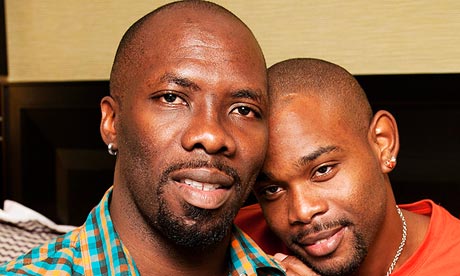
'I was with J-Flag for four years,' says Gareth Henry (left, with his Canadian husband, Aron Charles-Henry). 'During that time 13 of my friends were killed.'
Gareth Henry hit the international headlines in his native Jamaica four years ago when he was beaten by policemen in front of a mob of 200 people who cornered him in a Kingston pharmacy.
A year later, in 2008, the head of the Jamaica Forum for Lesbians, All Sexuals and Gays (J-Flag), fled to Canada following a series of death threats. He was granted asylum.
The 35-year-old gay rights activist and social worker is now one of two co-petitioners bringing the legal challenge against his former homeland at the Inter-American Commission on Human Rights.
"I was with J-Flag for four years," Henry explained on a trip to London this month. "During that time 13 of my friends were killed." He identified several of the bodies. "I took on the leadership of the organisation after the former leader, Brian Williamson, was stabbed to death in a homophobic attack in 2004."
On three occasions, Henry said, he suffered violence at the hands of police officers. The most notorious incident was on Valentine's Day, 2007, when a group of gay men were chased into the Monarch pharmacy in Kingston by a large mob. Henry was with them.
According to his statement to the commission, the police were called but were abusive when they arrived. One officer asked if he was a "batty man" and then all four policemen began beating him with their guns.
He subsequently complained to the Jamaican ministry of justice. "I met politicians and officials. I expressed concern about my safety and the fact that I was being targeted by the police. They didn't respond. The harassment from the police increased," he said.
"When I woke up on the morning there would be a police officer outside my window, saying they were going to kill me. I used to help house gay men who were homeless – primarily because family members had turned their backs on them. Some of these people were dying from HIV/Aids.
"If you are homeless and have no family support and are dying from HIV you have a sense of hopelessness. Even these people became a target for attacks.
"We documented the threats on my life. After the incident in February 2007, that made international headlines, we thought that would make some changes. But I had to go and live in hiding.
"I was stopped in traffic and a police officer said 'I have found you and we are going to kill you'. That statement still lives with me today. When I saw my friends being killed, I always asked 'Am I going to be next?'
"When he said that to me, I suddenly realised I was the next target. So I had to make a decision between running away and trying to find a safe place in a foreign land or staying and being killed.
"I was able to get out just in time but there are many other young men who are faced with the same threats and are not able to leave home and find a safe haven.
"Now I want to hold the Jamaican government accountable. A large proportion of the gay community in Jamaica is homeless and living in poverty and being ravished by HIV. Living with no hope and facing humiliation.
"Those people go through each day trying to survive, being anxious about homophobia and wondering whether they will be the next victim. There's no safe place in this country. We have exhausted all the possible options in terms of negotiations and meetings with the police.
"Why would a sane person chose to be a homosexual? Why would you chose death over life? It's clearly a human rights violation and it's time for radical action. We are calling on the international community to help save the gay community in Kingston."
:cheers: Great Video James :cheers:
I pray for relief for you in this situation soon :hug: